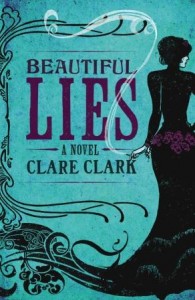
But the novel also is more about the society around the Lowe’s and the idea of wearing a mask to your family, society, and to some extent to yourself — hiding the truth from even your own consciousness. Clark blurs the lines between truth and fiction here in the photographs taken and discussed and as Maribel reflects on her past — lamenting tough decisions she made — and assessing her current situation — finding her way in a relationship with a very busy and outspoken politician.
“”It’s a pity you could not be there when Bill took forty of his Indians to the Congregational Chapel at West Kensington,’ Henry said. ‘That would have made a splendid photograph. Apparently, they sang “Nearer My God to Thee” in Lakota.’
‘I am not interested in the Indians as curiosities. If I am to photograph them it should be as they really are. The truth, not the myth-making.'” (page 173 ARC)
Maribel is an actress of the first order, as are many of the characters in the novel, as they navigate the complexity of their politics and society at a time when the economy is faltering. They attempt to hang onto anything that appears true and solid, whether it is Buffalo Bill’s traveling show or spirit photography. Clark offers very detailed accounts of Victorian society from the clothes to the streets and the economic conditions, but she also provides readers with a stimulating atmosphere that also blurs the lines of reality with those of art. In many ways, her chain-smoking protagonist’s view of the world permeates the novel so well that the story takes on a mysterious lilt, keeping readers in a state of distanced observation that makes it hard to connect with Maribel on an emotional level.
“Beside the tea chest he hesitated, fumbling in his pockets. There was the rattle of a matchbox and then the scrape and flare of a match. Shadows leaped from behind the lines of laundry as he lifted the candle to his face. Beneath the snarl of his eyebrows his sharp eyes flickered like a snake’s.” (page 1 ARC)
While the details are appreciated about the House of Commons, the rest of Parliament, the economy, the socialist movement, and other goings on of this era, Clark bogs down the narrative at certain points with these details, which keeps the reader at a distance from her character. While Maribel smokes obsessively and the prose focuses on it obsessively, the character comes off as careless and even boring at times as she waffles between taking action to improve her happiness and wallowing in the past. With that said, Clark has written an interesting narrative based upon a real-life politician’s wife who led a double life for many years.
Beautiful Lies by Clare Clark is an unique look at Victorian society plagued by hidden scandals and events that are exaggerated so that they become scandalous by newspapers and reporters. Disappointingly, the novel drops one of the story lines that was originally set up as one of the things that had the potential to bring down the Lowe family. Rather the scandals involving politicians and upper class activities uncovered by Webster become the crux of the novel, but the solution to the Lowe’s problem of Webster’s vendetta is unique. Overall, Clark has recreated the world of the late 1800s and touched upon the hidden lives of many members of society and the masks that humanity wears in public and even at home.
About the Author:
Clare Clark is the author of four novels, including The Great Stink, which was long-listed for the Orange Prize and was named a Washington Post Best Book of the Year, and Savage Lands, which was long-listed for the Orange Prize in 2010. Her work has been translated into five languages. She lives in London.
This is my 68th book for the New Authors Reading Challenge 2012.
To enter to win 1 copy of Beautiful Lies by Clare Clark, please leave a comment below by Sept. 28 at 11:59 PM EST. You must be a U.S. resident and 18 years or older.







